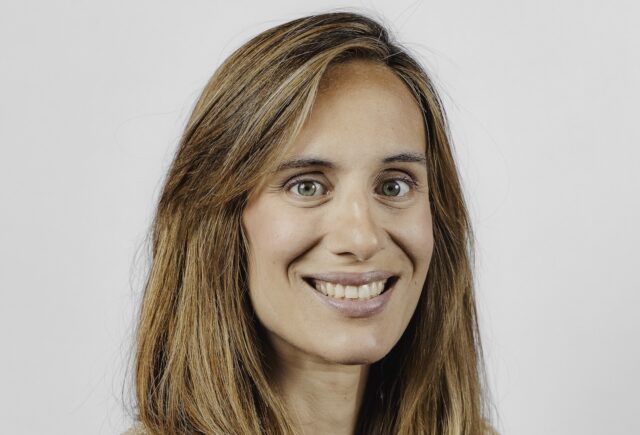Not even impact investors are immune to gender bias. In a series of articles we look at why investors are missing opportunities and what it means for non-male entrepreneurs.

If you are truly for diversity, why would you even need funds who invest exclusively in women or people of colour?
The short answer is that implicit bias is everywhere. If we wouldn’t have prejudices and make calculated guesses, it would be hard for humans to avoid dangers and even survive. That doesn’t mean that all modern-day prejudices and biases are preferable or that we should lean into them. Gender bias among investors is one example.
“This is not activism we are doing – the case to invest in female-founded companies is actually quite simple,” said Simone Brummelhuis, director and partner of Dutch Borski Fund.
The venture capital fund only invests in female-led or -funded technology companies, or start-ups and scale-ups “with a dedicated focus on women.”
Most portfolio companies are in medical tech or sustainable fashion, such as digital fashion house The Febricant and incontinence treatment developer Innovo.
Structurally underfunded
Brummelhuis refers to often-heard statistics that diverse and female-led companies are more profitable to investors, more innovative and more popular among their employees than male-led companies.
“Sure, in the long run this is all true and interesting. We are not saying men can’t start good and profitable companies. We are just saying: Female and mixed teams do that too. Women start other kinds of companies and they too need funding. And that’s not happening at the moment.”
Or at least, not to a large extent. Just 1.7% of all capital went to female founders in Europe in the last five years, according to The Venture City, a lobby group for more diversity in venture capitalist firms.
Gender-diverse companies “better fit”
Borski Fund is named after the Dutch banker and investor Johanna Borski who lived around two centuries ago. Modern-day Borski was founded in 2019 and has almost €40mn under management – “we still have a couple of unclosed tickets,” said Brummelhuis.
A typical investment is between €300,000 and €1mn in the first round; investments can be extended up to €3.5mn in new rounds. Fund director and partner Simone Brummelhuis says all diversity is good for a company and hence attractive to investors.
“But at Borski we focus on gender diversity, since that’s where our expertise and deal flow is. It’s also got to do with the phase companies are in. In Europe, gender-diverse companies are more mature than ethnically-diverse companies and hence a better fit for our fund.”
Unknown means risky
So why does almost all venture capital end up with male founders and CEOs? Diversity champion Brummelhuis sees several reasons. One is that men build other kinds of companies than women, in fields that investors are familiar with.
“Women tend to found more consumer-facing companies. Investors tend to go with what they are used to. Trying something new – such as an all-female founding team or a product in a segment the investor isn’t familiar with – is perceived as a risk,” said Brummelhuis.
Another reason for the funding gap is that women represent less than 10% of senior partners in VC funds in Europe, according to The Venture City. Given the often-observed tendency that men typically invest in men and women are more likely to invest in diverse teams, this narrows the entire funding funnel.
A fund-of-funds for gender equity
“The funding gap leads to an innovation gap and a wealth gap, which is an enormous problem today. If women get equal access to capital you will get new solutions to the market.”
Brummelhuis
“More and new kinds of intellectual property means that challenges that women have been dealing with for a long time can get a solution.” A typical example of this is the rise of femtech, Brummelhuis said. The sector includes services and products focussing on women’s health, such as period tracking apps and pregnancy care software.
To close the funding gap, Borski Fund calls for a €3bn fund to back female venture capitalists. “The European Investment Fund (EIF), the EU‘s investment arm, put €12.9bn into venture capital funds in 2020, but only a single-digit percentage of the funding went to female-led VCs,” according to Borski Fund.
The Dutch investor made the call to the EIF and European Research Commissioner Mariya Gabriel in July. The goal is to raise the share of capital that goes to female-led funds from an estimated 3% to 30% in the coming four years.






